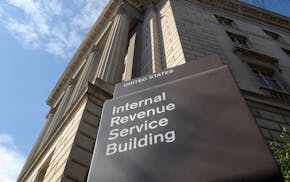A recent article characterized the debate surrounding legislation that would make it easier to form unions in the workplace as a question of survival -- a business' need to control operating costs vs. a union's fight to stave off dwindling membership. While the reporting and facts were straightforward and accurate, the piece missed what is perhaps the most significant element of the "card check" controversy: the consequences of this bill on democracy and workers' rights.
In November, America witnessed a historic presidential election in which the result of millions of secret-ballot votes determined the individual who will lead our nation for the next four years. Using the same secret-ballot process, Americans elected their representatives to Congress -- some of whom have decided that one of their first acts of business should be to take away that very same right from millions of workers.
At issue is the erroneously named "Employee Free Choice Act," legislation that would eliminate employees' right to a secret-ballot election -- which first was instituted in the United States to protect recently freed slaves during Reconstruction.
The proposed legislation would replace the secret ballot with a card-check system in which union bosses gather cards that workers have signed to express their desire to be represented by a union. Under current law, if a majority of workers sign authorization cards, employers can ask for a secret-ballot election in which employees can vote -- anonymously and without the threat of coercion -- for or against establishing a union. The EFCA, however, would eliminate this option for employers, instead forcing them to accept a union once a majority of workers have signed cards.
Currently, secret-ballot elections are conducted under the oversight of the National Labor Relations Board, an independent government agency that provides detailed procedures to ensure a fair election, free of fraud, in which employees may cast their vote confidentially without peer pressure or coercion from unions or employers.
Moving to a card-check system, meanwhile, would leave workers open to coercion, pressure and outright intimidation. Interestingly, while the card-check bill would levy civil penalties upon employers who coerce an employee, it remains silent on coercion from unions, already well-documented in card-check campaigns.
A witness before the House Education and Labor Committee in the last Congress cited the tactics used by union organizers. Jen Jason, a former organizer for UNITE-HERE, a union that represents nearly a million workers and retirees in the textile, lodging, food service and manufacturing industries, described a "blitz," a regular practice in which union organizers show up unannounced at the homes of workers, whose personal information and home addresses are obtained from license plates and other sources. During such visits, organizers are instructed not to show workers an actual union contract and to avoid such issues as dues increases and strike histories.
"I began my career with UNITE with a strong belief in workers' rights and democracy in the workplace," Jason said. "During the course of my employment with the union, I began to understand the reality behind the rhetoric. I took in the ways that organizers were manipulating workers just to get a majority on 'the cards' and the various strategies that they employed. I began to appreciate that promises made by organizers at a worker's house had little to do with how the union actually functions as a 'service' organization."
The question of card check is not about pitting unions, whose stated desire is to protect and serve workers, against businesses, who have a vested interest in retaining their employees. It is about how all parties can best protect workers' interests. As a new Congress begins to work with a new administration, it is a question we all must ask and work together to answer.
John Kline, R-Minn., is a member of the U.S. House of Representatives and serves on the Health, Employment, Labor and Pensions subcommittee of the Education and Labor Committee.
Readers Write: Politicized education, presidential debates, election strategies, small-town papers

Taxes increasingly paying for the past — not the future
!["Since the [Hennepin Healthcare System] Board took control in 2007, CEO pay increased by more than 142%. Meanwhile, that same board sunsetted employee](https://arc.stimg.co/startribunemedia/J7MD7DSJWMP3KYIYUSCQTABOAA.jpg?h=91&w=145&fit=crop&bg=999&crop=faces)

